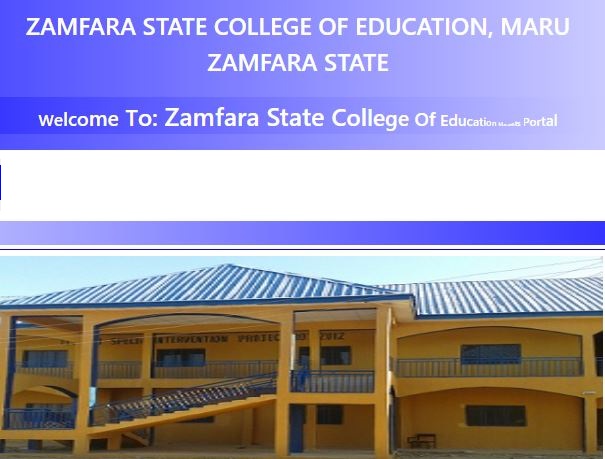
Education Stakeholders Doubts UTME Computer Based Version:
Stakeholders in education express uncertainty about the success of the computer-based examination introduced by the Joint Admissions and Matriculation Board, writes GBENGA ADENIJI
The unification of tests for candidates seeking admission into universities, colleges of education, polytechnics and institutes for entrepreneurship by the Joint Admissions and Matriculation Board a few years ago was well received by stakeholders, especially with the prompt release of results few days after the examinations.
Before the merger of the examinations under the Unified Tertiary Matriculation Examination, candidates seeking admission into each category of the tertiary institutions used to take the applicable examination on separate days. But doubts have been raised about the success of the Computer-based Test being proposed by JAMB to begin fully next year.
Similar Posts:
The doubts have persisted despite assurances by JAMB’s Registrar, Prof. Dibu Ojerinde, that the CBT was designed to “move forward education” in Nigeria.
A former Dean, Faculty of Education, Lagos State University, Prof. Ademola Onifade, who described the CBT as a good idea, said its challenge would be poor power supply. He pointed out that constant electricity drives computer-based initiatives.
He said, “If the board can guarantee constant electricity while the CBT lasts, there will be no problem. But if it will depend on the epileptic power supply in the country, the CBT will be a failure. It should be able to use reliable generators across all the centres where the CBT will hold ’’
The Education Rights Campaign, which blamed the problems plaguing education in Nigeria on government, stated that it would be impossible to make computers available to all the candidates that will take the examination at the same time.
The National Coordinator of ERC, Mr. Hassan Taiwo, noted that not all candidates have access to computers. He added that the introduction of the computer-based examination would put some candidates at a disadvantage.
It stated, “The education sector is underfunded and enshrined in perennial crises because government is not doing enough for the sector. The CBT should be made optional so that candidates who are not computer literate can take the examination without using the computer. If it is not made optional, it will have a backlash on the performance of candidates who cannot use the computer adequately.”
Also, the Chairman, Academic Staff Union of Universities, Enugu State University of Science and Technology branch, Prof. Gabriel Agwu, said the introduction of the computer-based examination was a progressive step but would require a reexamination considering the nation’s power sector.
He said the examination should be made optional because candidates in rural areas would not have access to technology like their counterparts in urban centres. According to him, there are a lot of things that should be considered before the introduction of the computer-based examination by the board.
“For those who are in urban areas, it may be easy for them to take examination via computer because of their exposure to technology but candidates in rural areas may find it difficult to take the computer-based examination. They cannot get a modem and attach it to a mango tree,” Agwu said.
A candidate, Seyi Daramola, said her inability to purchase a scratch card on time to register for the Paper-Pencil Test made her enroll for the CBT. Describing her competence in the use of computer as poor, Daramola added that she was currently learning how to use it effectively in order to finish the examination within the stipulated time and perform better.
She stated, ”I got the card late and when I wanted to register, the available examination for the UTME was the computer-based exam. I know that the Post-UTME in the university I chose will be done through computer but I cannot compare the tension of taking a Post-UTME with the UTME. I will not want to take the UTME through computer if I have my way. But the way it is now, I have no choice. I am not good at using the computer.’’
Another candidate who simply identified herself as Gloria, said it was a good thing JAMB introduced the CBT examination but she was of the view that some candidates would be used as ‘guinea pigs’ until the system stabilises.
In the PPT examination conducted last Saturday, some candidates in some centres in Uyo, Akwa Ibom State were reportedly given papers which they didn’t choose.
Specifically, at Four Town Secondary School, Uyo, some science candidates were reportedly given arts papers while some candidates who registered for arts subjects were given science papers to write.
The supervisor of the centre, Dr. Maria Afangide said the situation was caused by the misplacement of numbers by the candidates.
About 616,574 candidates are expected to take the CBT next month. The PPT was written by 1,015,504 candidates last Saturday.
Ojerinde told the News Agency of Nigeria that the computer-based test would hold on May 17, 2014, across 3,000 centres.
He said, ”The CBT will start on May 17, and it will continue for 12 days. We are prepared. We have 300 centres for CBT. This is the last time we are going to do Paper-Pencil Test; it will be all CBT next year, we want education to move forward, one of the ways of moving it forward is to eradicate examination malpractices.’’
Ojerinde also said the CBT was designed to help Nigeria’s move to join the comity of nations in technology development.
According to him, the choice of the CBT was to curb exam malpractices, release results at the same time and encourage candidates to prepare adequately.
“Our experience last year showed that the CBT candidates passed better than the PPT ones; there was no single examination malpractice, there was no missing result and answer script,” he said.
The registrar added that that the CBT would check problems related to cost and delay experienced by candidates seeking admission through Post-JAMB tests. Ojerinde added that it was impossible for an applicant to register for both PPT and CBT. (Punch)



